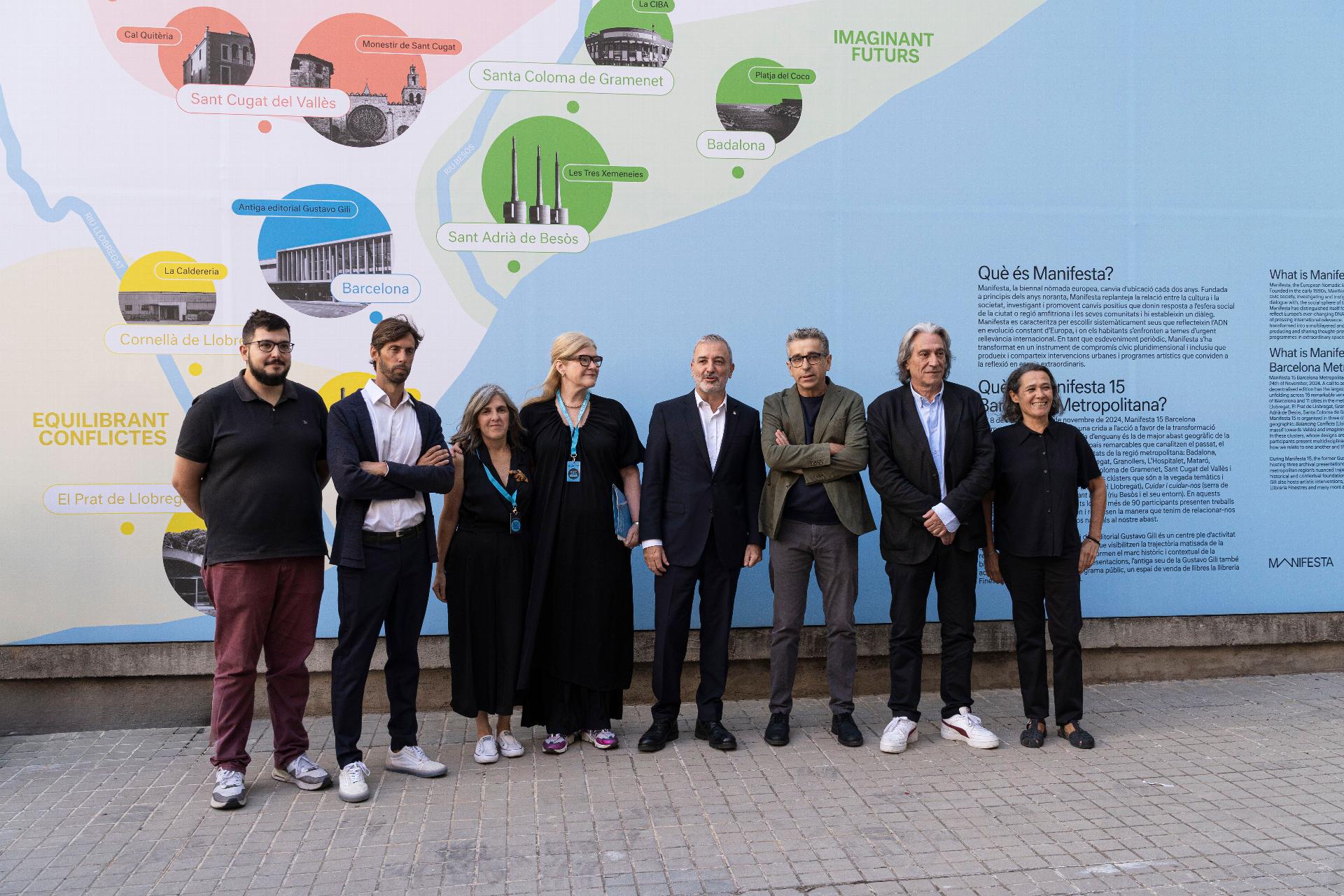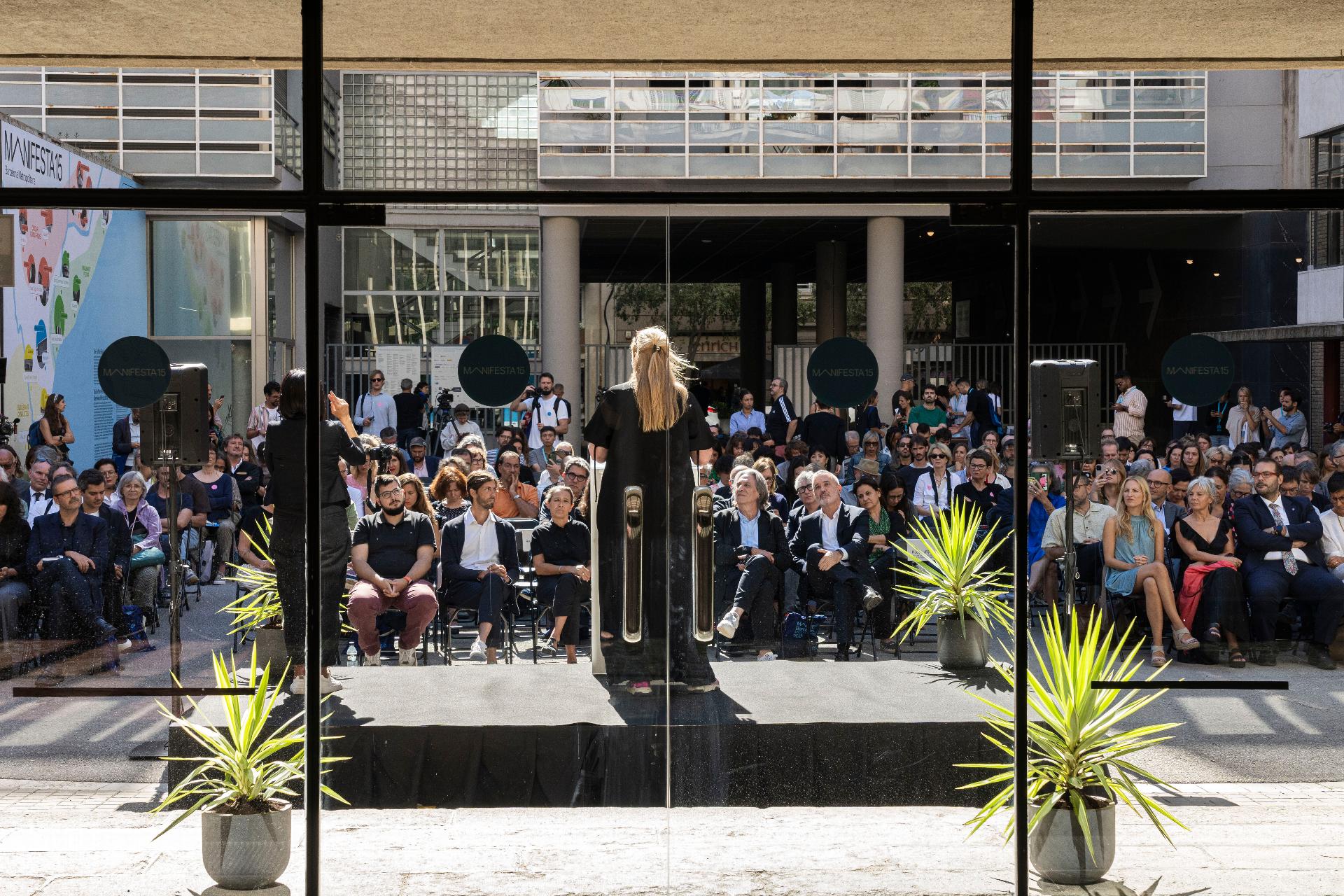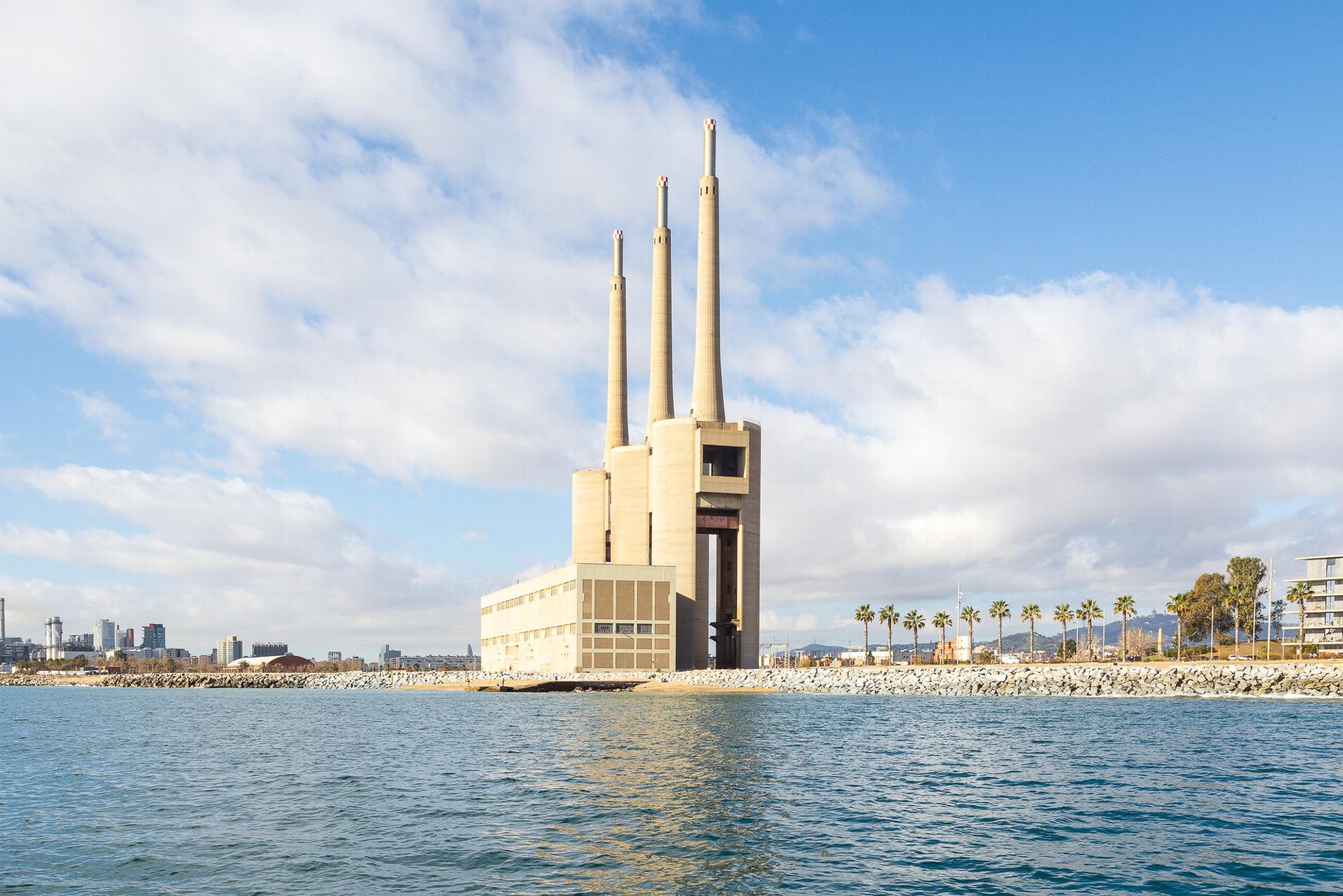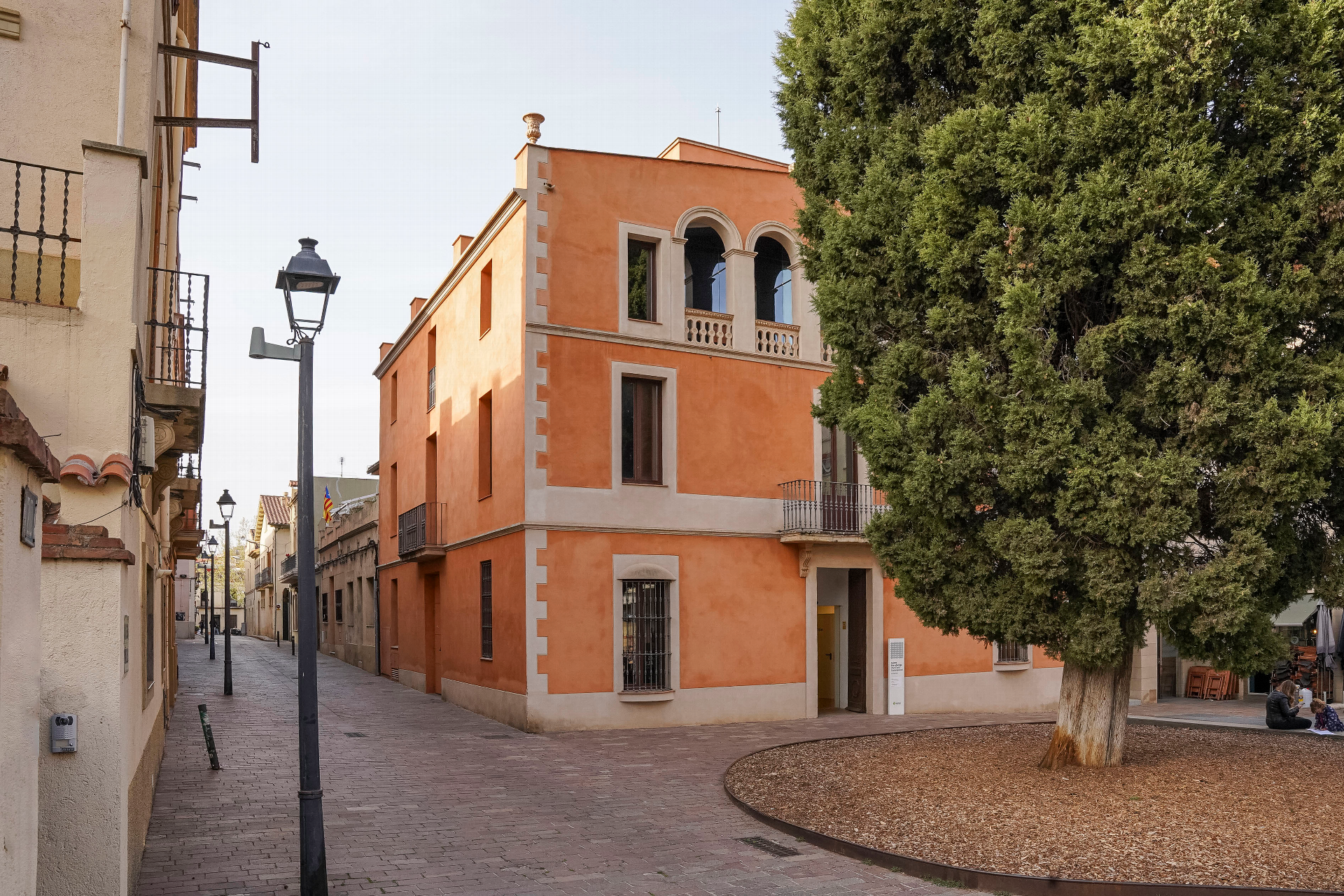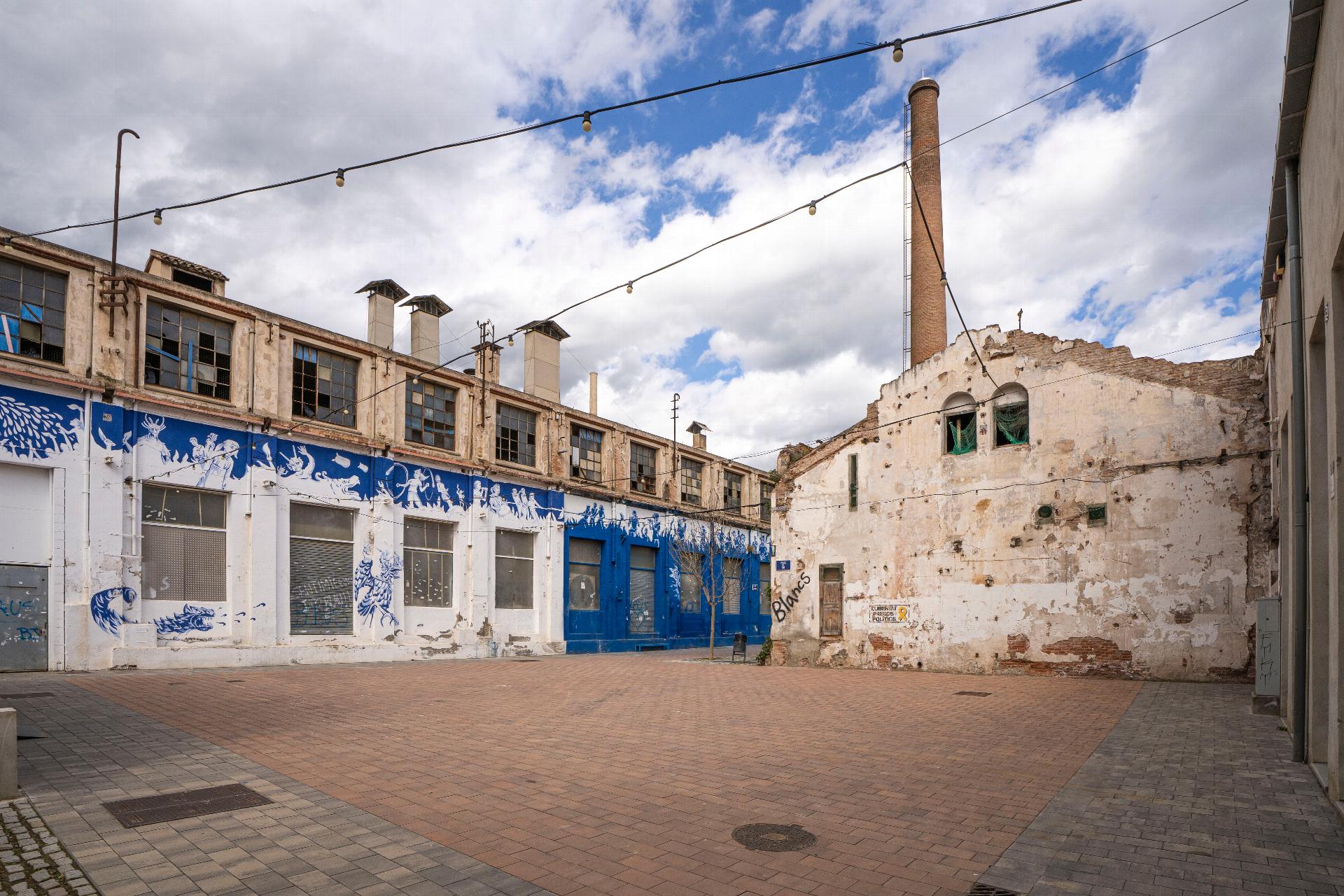Manifesta 15 is an ambitious experiment on how artistic interventions can drive eco‑social transformation. The edition explores not only the urban, environmental and political challenges facing the metropolitan region, but also how these challenges reflect those affecting other metropolises in Europe. The heart of Manifesta 15 is the former building of the Gustavo Gili publishing house, located in the Eixample district of Barcelona, where the press conference for the presentation of this edition was held this Thursday. It ºwas attended by the director of the biennial, Hedwig Fijen, the mayor of Barcelona, Jaume Collboni, the councillor for culture, Xavier Marcé, the creative mediator, Filipa Oliveira, the director of Terrassa Arts Visuals, Imma Vilches, the deputy of Culture of the Diputació de Barcelona, Pau González, the secretary of State for Culture, Jordi Martí, and the director of the Institut Ramon Llull, Pere Almeda. Almeda highlighted the historic opportunity for projection posed by Manifesta: "Catalan creation, with its critical and rebellious tradition, has a great presence in this biennial as an incubator for social change."
During Manifesta 15, the Gustavo Gili building hosts three newly commissioned archival presentations, which constitute the historical framework of this edition and focus on the colonial past and its repercussions, the countercultural movements during the rise and fall of the Franco dictatorship and the stories of Catalan educational renewal. The presentations are entitled Fora per fer escola: pràctiques radicals des de les pedagogies catalanes, (Getting Out for Schooling: Radical Practices from Catalan Pedagogies) Escola Passats: Barcelona i la imaginació política radical, (Escola Passats: Barcelona and the Radical Political Imagination) and i Arxius Negres: fragments d’una metròpoli anti-colonial (The Black Files: Fragments of an Anti-Colonial Metropolis).
From the Gustavo Gili building Manifesta 15 extends throughout the metropolitan region. The edition is organized into three clusters that are at once thematic and geographical: Equilibrant conflictes (Balancing conflicts) -Llobregat delta; Cuidar i cuidar-nos (Caring and taking care of ourselves) -Collserola hills towards the Vallès; and Imaginant Futurs (Imagining Futures) -Besòs river and surroundings. Over 90 participants present multidisciplinary works in these clusters. Each cluster’s journey will begin at an extraordinary exhibition site that symbolizes its overall theme. The building of Les Tres Chimeneies located on the coast between Barcelona, Sant Adrià de Besòs and Badalona will be the starting point of the theme "Imagining futures". The venue, which will be open to the public for the first time, will exhibit artistic interventions in the turbine room and in the outdoor areas. The Monastery of Sant Cugat, a historical symbol of spirituality and reflection, will be the main venue for the theme "Caring and being cared for". Finally, Casa Gomis, located in the natural landscape of the Prat de Llobregat, will be where the theme "Balancing conflicts" will begin.
The biennial programme in each of the participating metropolitan cities will include interventions, exhibitions and projects in emblematic places. In addition to Barcelona, the other headquarters are Badalona, Cornellà de Llobregat, El Prat de Llobregat, Granollers, Mataró, L'Hospitalet de Llobregat, Sabadell, Sant Adrià del Besòs, Sant Cugat del Vallès, Santa Coloma de Gramenet and Terrassa. The Institut Ramon Llull is part of the organising committee.
The Catalan proposals that comprise this international event are the work of the following artists: Antoni Tàpies (1923-2012), Aurèlia Muñoz (1925-2011), Moisès Villèlia (1928-1994), Magda Bolumar (1936), Antoni Miralda (1942), Fina Miralles (1950), Nora Ancarola (1955), Domènec (1962), Massa Salvatge & Lluc Mayol (1970), Carlos Bunga (1976), Alba G.Corral (1977), Tania Safura Adam (1979), Rosa Tharrats & Gabriel Ventura (1983), Lola Lasurt (1983), Mónica Rikić (1986), Ariadna Guiteras & Diversorium (1986), Matías Daporta (1987), Eva Fàbregas (1988), Clàudia Pagès (1990) anf the collectives Tornen a les esquelles, La Casa dels Futurs, Jokkoo & cantdefine.me and OJO estudio.
Manifesta originated in the early 1990s as a response to the political, economic and social changes derived from the end of the Cold War, certified by the fall of the Berlin Wall (1989), and the subsequent steps towards European integration. Since then, the event has become a travelling platform that focuses on the dialogue between art and society in Europe.
Previously, the biennial been held in Rotterdam (1996), Luxembourg (1998), Ljubljana (2000), Frankfurt (2002), Saint Sebastian (2004), Nicosia (2006 – which was cancelled), Trentino-Tyrol Sud (2008), Murcia in dialogue with North Africa (2010), Limburg (2012), Saint Petersburg (2014), Zurich (2016), Palermo (2018), Marseille (2020) and Pristina (2022). The next edition will be held in 2026 in the German Ruhr region.

